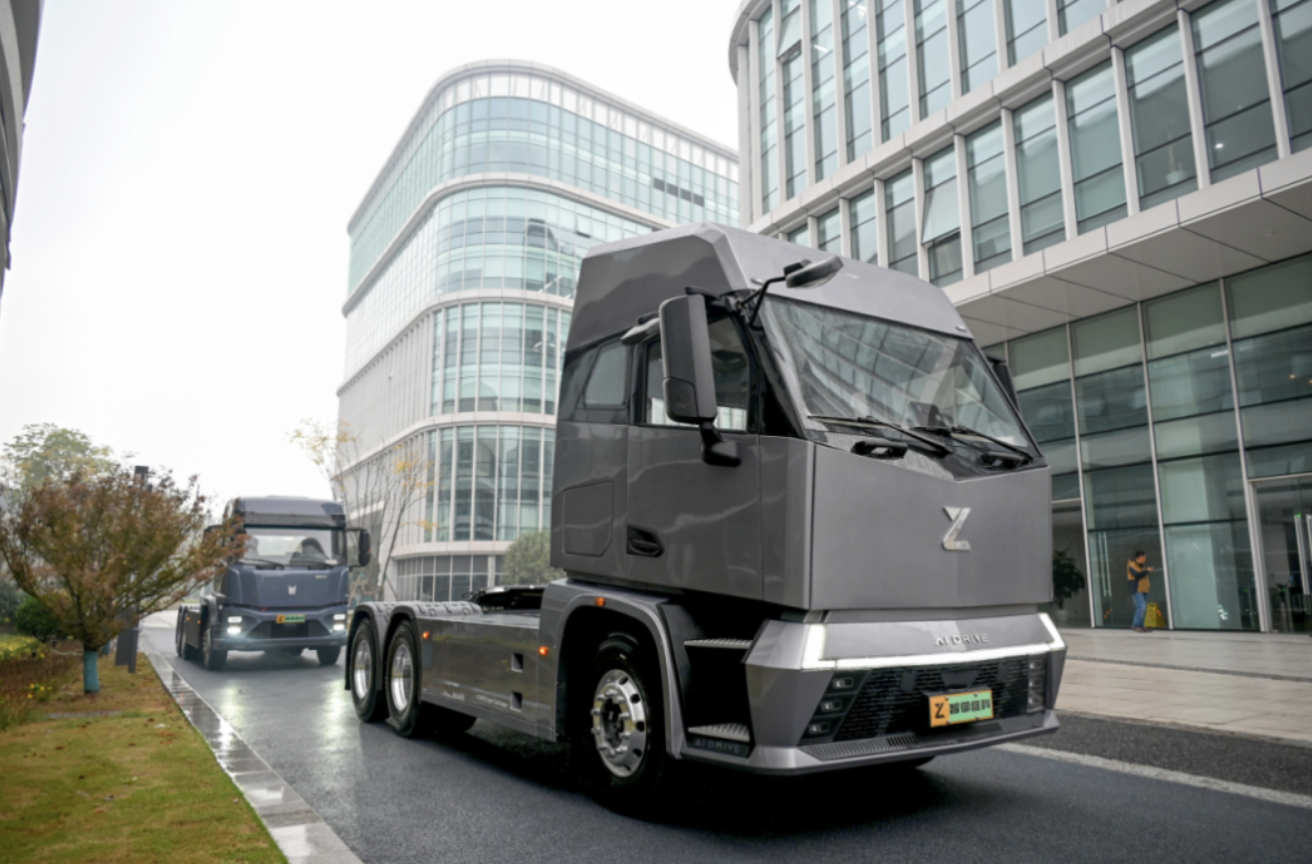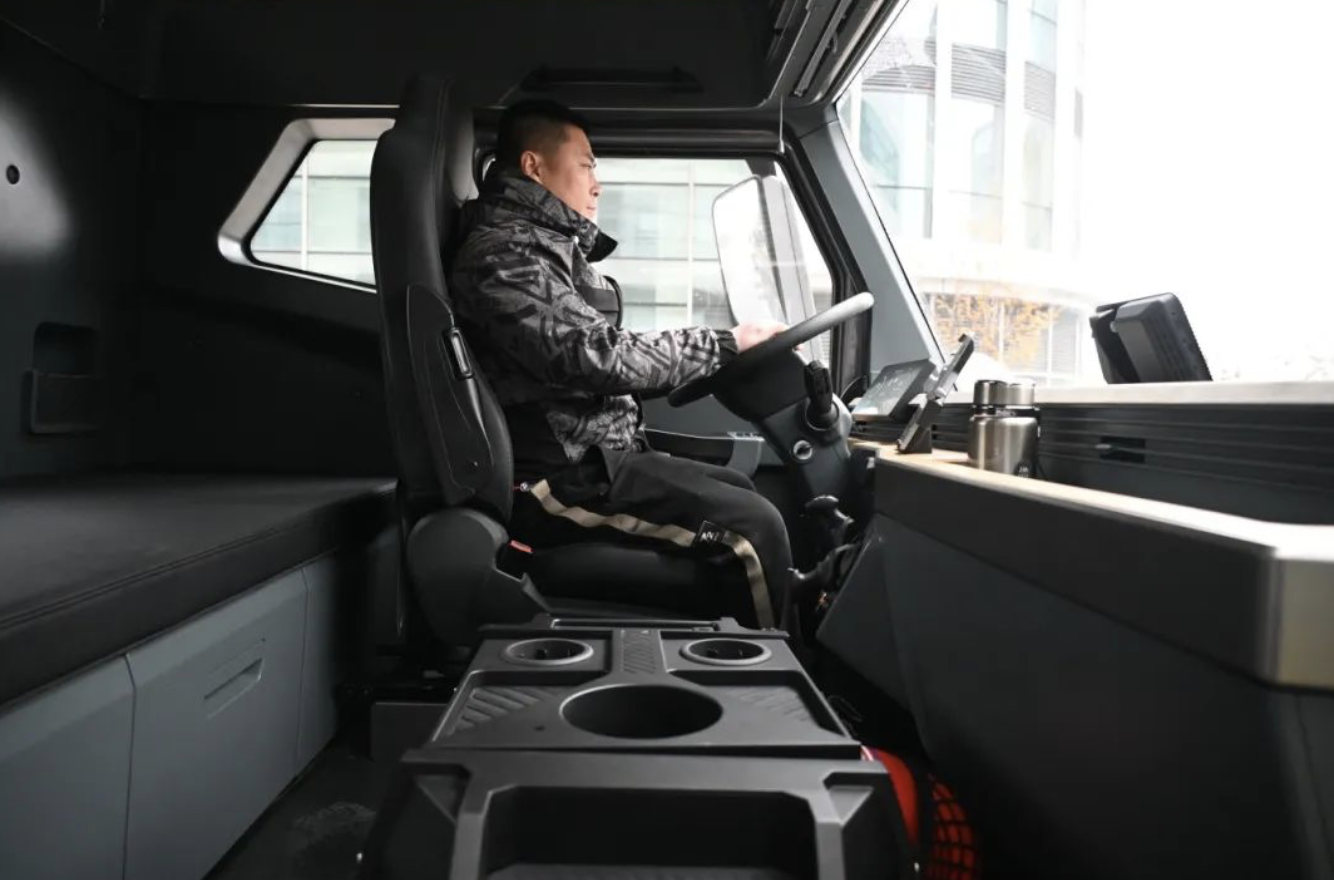 Bridging News
Bridging News
Science City Hosts Global Debut of Game-Changing Electric Trucks T9 and Z5
Chongqing - Western (Chongqing) Science City recently hosted the global debut of two game-changing electric trucks: the T9, a pioneering medium and short-distance freight truck, and the Z5, designed to slash operating costs while boosting efficiency.
Developed by AI DRIVE, a company specializing in intelligent connected commercial EVs, these electric trucks outshine traditional diesel models with power, sustainability, operating costs, and maintenance benefits.
The T9’s striking mech-inspired design is more than just visual appeal. Built with steel-aluminum composites and a modular battery-chassis integration, it sheds 730kg. Its wedge-shaped profile and diamond-cut front enhance aerodynamics, further reducing weight.

The world's first fully forward-developed intelligent electric heavy truck for medium- and short-distance bulk freight transportation—T9. (Photo/Lei Jian)
Weighing just 8.9 tons with a 400-kilowatt battery, the T9 uses high-strength steel and composite materials to carry one more ton of cargo than competitors. This design boosts payload capacity and reduces energy consumption while maintaining structural strength.
Currently in testing, the T9 is set for mass production by Q2 2025.
In contrast, the Z5, officially launched in October this year, offers advancements in lightweight design aimed at immediate transport efficiency gains. Nearly 100 units have already been ordered. The Z5 is designed for urban short-haul freight transport.
According to Li Chao, vice general manager of AI DRIVE, in the low-margin logistics sector, reducing a truck's weight by 1-2 tons can generate an additional 50,000 to 100,000 yuan (about 6,852 - 13,703 USD) in annual revenue.
Li continued, "Given that an electric heavy truck typically generates around 200,000 yuan (about 27,407 USD) in annual revenue, this represents a 40% increase in revenue."
The T9's cab introduces several design innovations. Unlike traditional truck cabins, it lacks a passenger seat, replacing it with a convenient toolbox for the driver. Features such as a flat floor and a streamlined dashboard further improve functionality and driver comfort.
A small screen next to the driver displays key data, allowing for direct order acceptance and real-time operations tracking. Fleet managers can also remotely monitor vehicles, optimize task allocation, offer energy-saving advice, and issue safety alerts, leading to a 30% boost in both operational efficiency and safety.

An overview of the T9 cab. (Photo/Lei Jian)
"Our intelligent scheduling platform ensures seamless coordination between drivers and tasks," said Wang Xiufeng, CIO of AI DRIVE. "For example, when 20 trucks are queued, the system will manage their charging needs based on their destinations and cargo—charging some to 80%, others to 90%, depending on their individual tasks."
Qu Wanda, CTO of AI DRIVE, revealed that the company plans to expand into medium and long-distance electric trucks with larger battery capacities. He highlighted that their vehicles are designed for "vehicle-road-cloud integration," which will open up a wide range of applications and data, positioning AI DRIVE for China's future in intelligent connected EVs.
 Related Stories
Related Stories